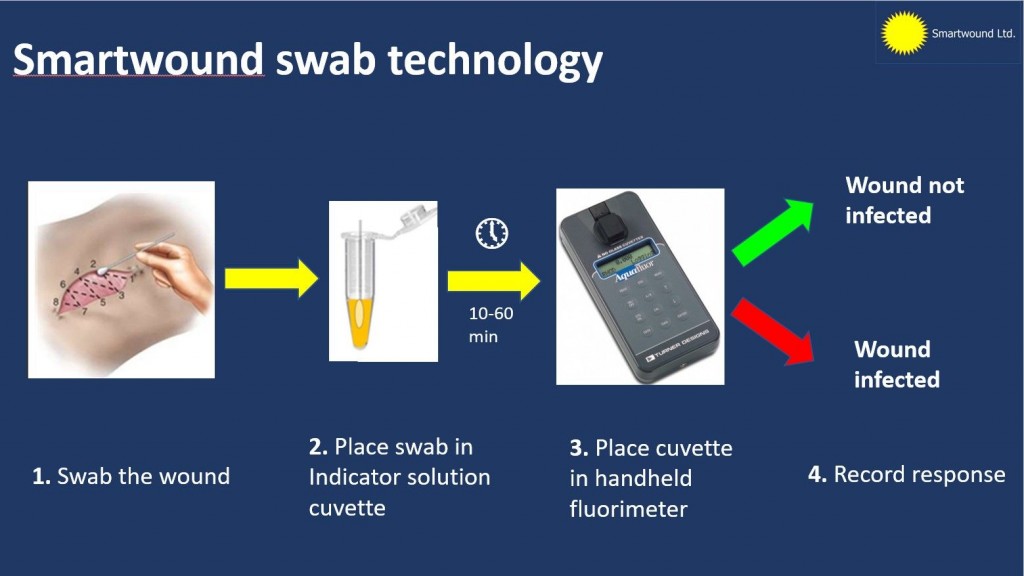A company formed by scientists from the University of Bath is creating a quick and simple test for diagnosing bacterial infections in wounds, based on technology developed by the university’s Department of Chemistry.
SmartWound’s test uses a colour-changing dye to diagnose bacterial infections from wound swab samples, specifically detecting when toxic bacteria are present without responding to the ’good’ microbes normally found on healthy skin.

The test is quick and simple to use and does not need to be sent to a laboratory for processing, meaning clinicians can potentially spot infections earlier.
This could not only allow improved treatment for patients but also reduce unnecessary use of antibiotics, helping combat the threat of drug-resistant bacteria.
SmartWound’s technology also has the potential to reduce the length of hospital stays, resulting in more streamlined and cheaper care pathways for patients.
The firm has worked closely with the University Hospitals Bristol and Weston NHS Foundation Trust and a proof-of-concept study with a small group of its patients and with Queen Victoria Hospital in East Grinstead showed the technology’s good accuracy.
The path to approval for the technology and commercialisation of the test possible will be supported by the University of Graz, Austria’s second largest university.
University of Bath Professor of Biophysical Chemistry Toby Jenkins, who is SmartWound’s scientific advisor, said he was delighted to see the technology start its commercialisation process and to be able to collaborate with the University of Graz to make it happen.
“Antimicrobial resistance is seen as a major healthcare challenge by the World Health Organisation,” he said.
“Our technology will enable healthcare professionals to make better prescribing decisions, which will help reduce the spread of resistance.
SmartWound CEO Alan Boyce added: “I am thrilled to work with these three universities. This technology will be especially valuable in developing countries where resources are limited, and an affordable and accurate diagnostic of wound infections would make a big difference.”
Commercialisation of the test in the European Single Market and many other developing and emerging markets that use CE-mark confirmation as reference is being led by the University of Graz’s Diagnostic and Research Centre for Molecular BioMedicine and the Institute of Health Care Engineering with European Testing Centre of Medical Devices in Austria.
The insititutions have the necessary credentials to support the market authorisation of this new diagnostic under the new EU Regulations that come into force in May 2022.
The University of Bath is one of the UK’s leading research universities with a strong track record for spin-out businesses.




















